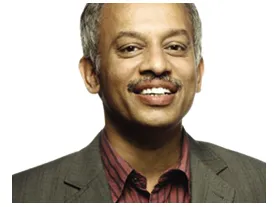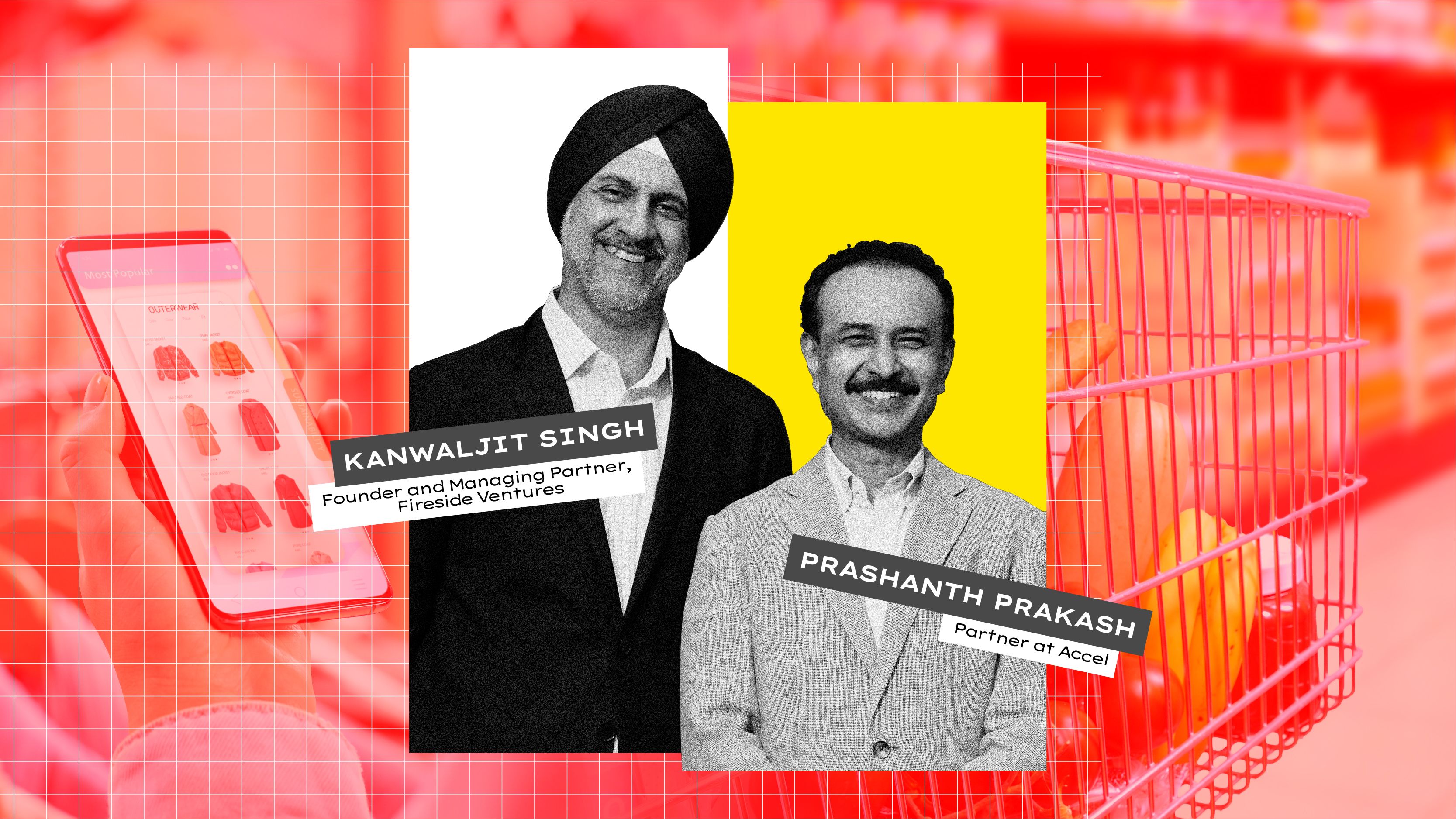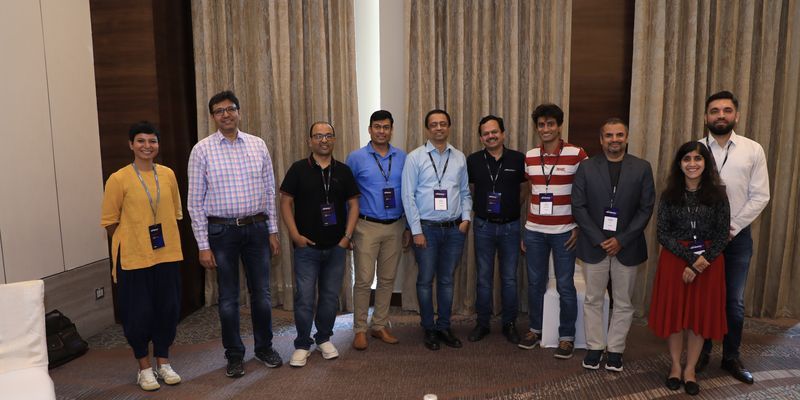Subrahmanyam Yadavalli, MD and CEO, CoOptions on using technology to empower rural communities
Monday February 28, 2011 , 9 min Read

Subrahmanyam Yadavalli (or Subbu) used to work with one of India’s premier PSUs in the technology space for over 12 years. But soon, he realised that he couldn’t hold back the entrepreneurial streak in him any longer and set out to start CoOptions, one of India’s most efficient rural delivery networks which harnesses technology to empower rural communities. In this exclusive chat with YourStory, he speaks about enabling credit delivery in rural areas and life as an entrepreneur.Subbu, define CoOptions in about 50 words.

CoOptions is an IT-enabled rural service delivery network which seeks to address the overall requirements of rural communities through the existing network of Primary Agricultural Cooperative Societies (PACS).
So, how did the business idea for CoOptions come about?
Well, I used to work with CMC Limited. People might not remember it today. But in the 80’s, it was the most advanced IT company in the country. This was during what was called the “licence raaj”. IBM had just been asked to leave India and CMC took off after their exit. At that point of time, the smartest of people worked for CMC. I was there for about 12 years and during that stint, I had the opportunity to work with the cooperative banking sector.
I studied the cooperative movement in our country extensively and realised that cooperative societies could be harnessed for much greater purposes using technology. We (the three co-founders and I) spent considerable amount of time and effort in conceptualizing CoOptions and eventually started it in 1999. In fact, what we are doing today is exactly how the idea was conceived. And that’s because we thought it through with the future in mind.
Could you run us through the scenario within which CoOptions operates?
Let’s say a farmer needs credit of Rs.100. Currently, he gets about Rs.25 of that from NABARD. From the private banks, he gets another Rs.25. For the rest of the requirement, he turns to the moneylender. The moneylender charges an obscene rate of interest. But with him, credit is instantly available.
Now, for this farmer, his first Rs.50 comes at an average interest of about 7%. And his second Rs.50 comes, believe it or not, at an average interest of 48%. So, under such circumstances, he ends up paying about Rs.30 as interest for every Rs.100 borrowed. What is key here is that if the moneylender is taken out of the equation, the farmer automatically saves Rs.20. So, why doesn’t that happen?
The reality is that the cost of servicing such a loan is too high for private banks. Here’s where we come in. The banks can service the loan through CoOptions, which will partner with the co-operatives and bring them together using technology, i.e., computerizing the PACS and enabling transactions electronically. The technology here is the PAX platform that has been developed by us. It’s a multi-institutional, multi-instrument platform. And that ideally means that people will have the choice of ‘any bank, any service.’
Currently, what is the footprint that you’re looking at?
As of now, we are present in Andhra Pradesh (AP). In AP alone, there are 2748 PACS (Primary Agricultural Cooperative Societies) with a membership of 1.12 crore members. That’s a lot of people. Within this pool, we have people in the categories of unserved, underserved and completely served. So far, CoOptions has partnered with 1180 PACS. That’s covering about 45 lakh members. And with each member having a family of, let’s say, four, the footprint becomes even larger.
The idea is to create a complete financial marketplace at the PACS. By the end of this year, we want to partner with every single PACS and have about 95% of AP’s rural populace reachable though this network. And the footprint’s growing because the problem of credit delivery is being solved. We’re now processing it within 10 days of application for credit.
For most entrepreneurs, getting the first break is their one of most memorable moments. Can you take us through your early days with CoOptions?
After starting in 1999, we spent the first two years developing the product. Our first break was a pilot for the government of Andhra Pradesh in 2001. They initiated an open tender bidding process and we were one of the few companies selected. CoOptions was given 4 districts to demonstrate viability and tangible results. The pilot was for 5 years and at the end of it, we did a huge presentation about the work done and the great response. So, they renewed the arrangement and this time around, they asked us to work on all the districts.
Can you tell us about CoOptions’ revenue model? What about funding?
The idea is to provide additional services over and above the base services mandated by the government and make money through revenue sharing. The base services will not be charged. For instance, we can look at making the PACS network available to a FMCG company that wants to expand its rural reach.
With respect to funding, we’ve had infusion of funds twice till now. We started with our own money and then, N S Raghavan, the co-founder of Infosys, came in as an angel investor. In 2009, after having proved our worth through the pilot, the global venture capital firm Walden International invested in us for our scaling effort. In total, we’ve received funding to the tune of $20 million.
What are the challenges and constraints that you faced during your entrepreneurial journey?
In India, there has been a territorial marking of sorts with the cooperative sector holding forth in rural domains and the commercial banks reigning supreme in the urban areas. The urban areas have the resources and rural is what brings reach. To wed these two, a mindset change is required and that’s a challenge.
Another challenge lies in finding the right people. A great deal of what we do depends on capacity building at the PACS level and hence, getting people who have both intelligence and empathy is a prerequisite. They have to be trained, taught how to use computers, etc.
Also, in the early days, we had to win the trust of the governmental authorities. Despite all the challenges traditionally attributed to working with government officials, we found that there was a significant chunk that simply didn’t want us to jump in and spoil the existing system. We realised that they weren’t trying to stop us. They just did not want us to rock the boat that was, in principle, sailing. So, we got them to buy in to us telling them that they would lose in no way and their fears were allayed when we demonstrated success.
Besides the fact that your model is being accepted and adopted rapidly, what is the other sort of validation that matters to you with respect to CoOptions?
Besides the validation received from people who have benefitted, we have been lucky to receive encouragement from some exceptional people and our partners. Dr. C.Rangarajan, the Chairman of the Prime Minister’s Economic Advisory Council, spent a whole day at a village checking out our model and mentioned that this ought to be replicated across the country. He came in through one of our key partners, Union Bank of India. They’re extending Rs.500 crore in credit to farmers through us this year. But this did not happen overnight. When they first came on board, they were extending nothing more than Rs.50 lakhs. This was followed by two more rounds to the tune of Rs.2 crore and Rs.20 crore. They raised the bar every time we proved our worth.
Also, N S Raghavan didn’t invest in CoOptions for just monetary gain. If that was the objective, he would have had a dozen other options. But he looked at CoOptions as a nation-building initiative with developmental outcomes and we’re proud of that. Even Walden International told us that we had a proven idea and funded us so that we could grow and acquire scale.
The backbone of your work is technology. Working in rural areas, how do you keep things running smoothly?
If you want to IT-enable things in rural areas, you need a partner who will go beyond the regular metrics of price and performance and deliver 24-hour support. Dell has been a phenomenal partner to us that way. They came in and said that they would help us with our data management. And let me tell you, managing the data of more than a crore people is no easy task. They also offered to take care of our consulting requirements. There are data security standards in IT infrastructure, which have to be met by companies in the financial space and they helped us out with that.
Dell also extended the pay-as-you-go option to us. As we didn’t know in advance the pace of the scaling effort, this brought in flexibility. Their service support is great and honestly, they’ve gone beyond being a just transactional partner. They work with few other companies in this space and they’re connecting us and enabling collaboration. They’ve even passed on business leads to us. We love their “you grow, we grow” approach.
What are the crests and troughs of being an entrepreneur?
There is a tremendous sense of purpose. By purpose, I’m referring to the deep-rooted variety that goes beyond the money. If you chase money, you will probably do well. Your enterprise might even make money. But what happens after that? Instead, if you have a vision to create value, you will have enough work to do forever and you might incidentally end up making some money as well.
As an entrepreneur, you will be tested almost continuously. And that’s a lot of fun. Every day is different. Every day gives rise to new challenges. You will have trust yourself and be persistent.
Also, mistakes will happen. You can be careful and cautious. But they are inevitable. You’ll have to accept that. At the same time, there is joy in making amends swiftly. You’ll have to be very agile in the context of business. After all, there’s a surprise lurking around every corner.
What is the one piece of advice that you would to young people considering entrepreneurship?
I’d tell them to go right ahead and jump in, provided that they have an idea they feel strongly about and that the idea makes commercial sense. India needs 100,000 entrepreneurs. That’s how the USA was built – by entrepreneurs. I started my venture when I was 35. I should have done it when I was 25. So, I’d ask them to move out of their comfort zones and start up. It will push your limits, challenge you and make you a stronger person.
To know more about Subbu and CoOptions, check out www.dell.co.in/takeyourownpath
Dell – Helping Entrepreneurs Take Their Own Path










